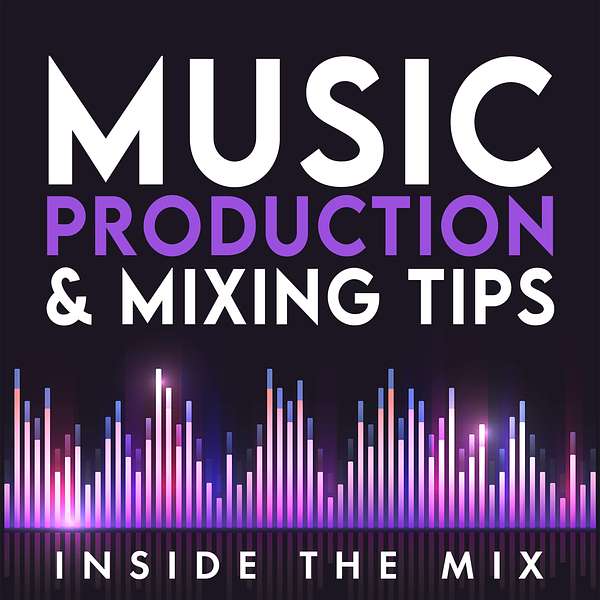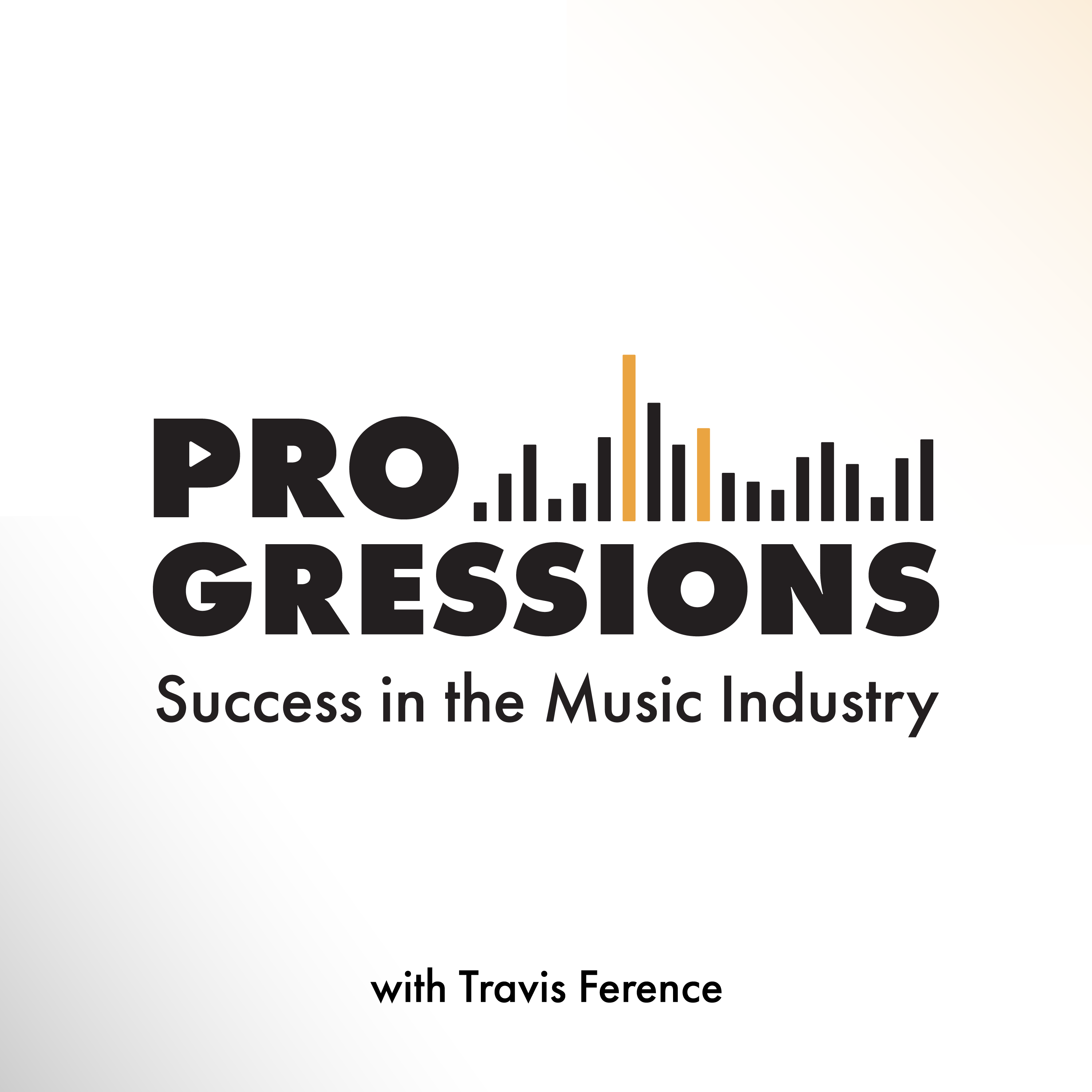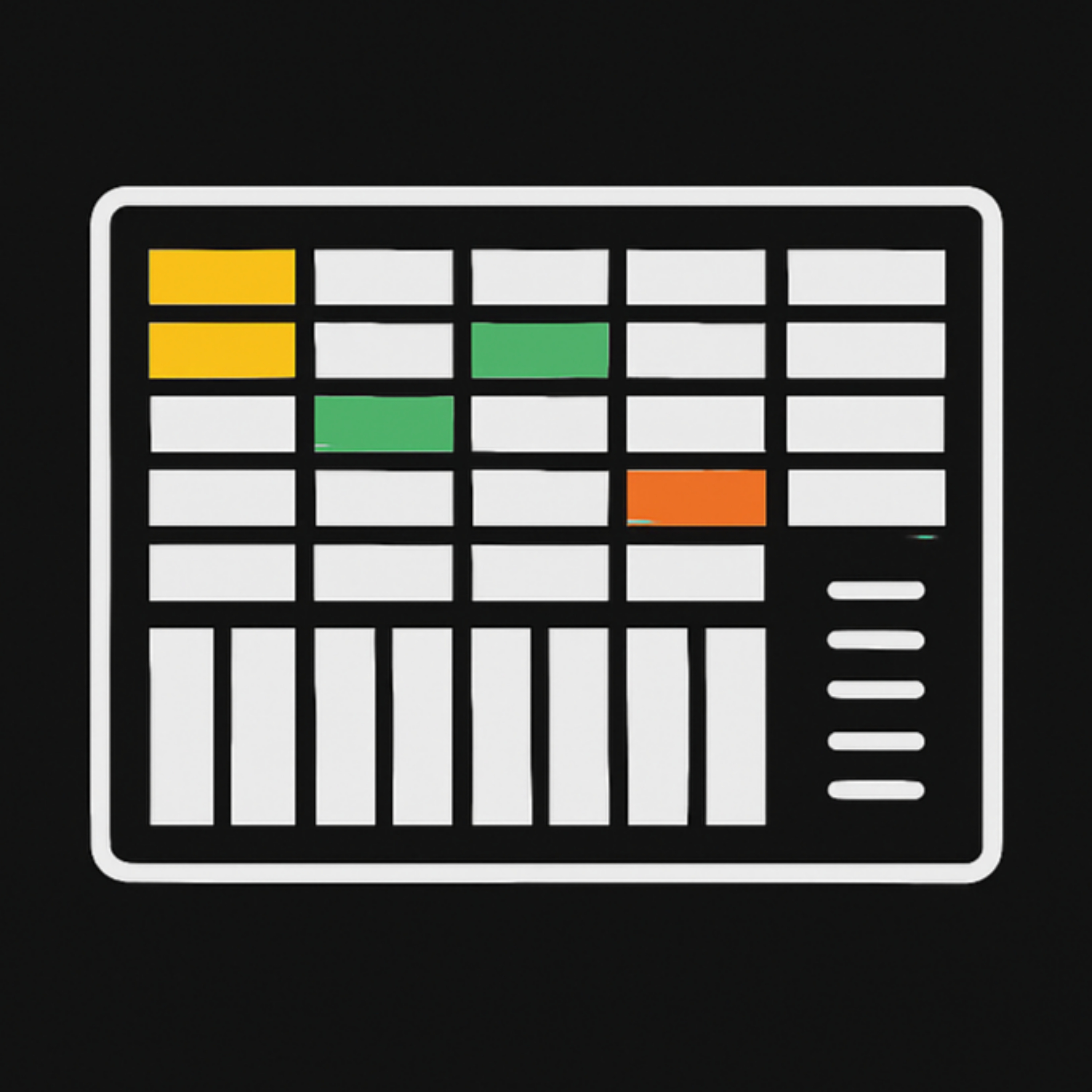
Music Production and Mixing Tips for Beginner Producers and Artists | Inside The Mix
If you're searching for answers on topics such as: How do I make my mixes sound professional? What equipment do I need to start producing music at home? What is the difference between mixing and mastering? What are some of your favourite production tools and techniques? How do I get my music noticed by record labels? Or what are the key elements of an effective music marketing strategy? Either way, you’re my kind of person, and there's something in this podcast for you!
I'm Marc Matthews, and I host the Inside The Mix Podcast. It's the ultimate serial podcast for music production and mixing enthusiasts. Say goodbye to generic interviews and tutorials, because I'm taking things to the next level. Join me as I feature listeners in round table music critiques and offer exclusive one-to-one coaching sessions to kickstart your music production and mixing journey. Prepare for cutting-edge music production tutorials and insightful interviews with Grammy Award-winning audio professionals like Dom Morley (Adele) and Mike Exeter (Black Sabbath). If you're passionate about music production and mixing like me, Inside The Mix is the podcast you can't afford to miss!
Start with this audience-favourite episode: #175: What's the Secret to Mixing Without Muddiness? Achieving Clarity and Dynamics in a Mix
Thanks for listening!
Music Production and Mixing Tips for Beginner Producers and Artists | Inside The Mix
#150: Unlock Your Creative Flow State: 5 Essential Productivity Tips for Producers and Artists
Have you ever wondered how to increase productivity? Maybe you're seeking info on the topics: flow state productivity tips, maximising flow state, getting into productivity flow, working in a state of flow, or maybe even, boosting productivity. Then check out EP 150 of the Inside The Mix podcast.
Ready to unlock your full creative potential? Join me as I celebrate the milestone 150th episode of the Inside the Mix podcast! Over three incredible years of engaging conversations and valuable insights, I've gathered my top five flow state productivity tips that keep me on track with podcast production, music creation, and client projects. Inspired by a fascinating discussion with Travis Ference from the Progressions Success in the Music Industry podcast, these practical strategies include preparing a to-do list before bed and eliminating distractions through work mode settings, designed to help you stay laser-focused and achieve more.
In the second part of this special episode, we focus on mastering productivity in music production. You can better manage your schedule and set achievable goals by tracking the time spent on tasks like mixing, mastering, and songwriting. I'll share how this approach has enabled me to juggle multiple podcasts, release my music, and manage client work efficiently.
Plus, don't miss out on my free producer growth scorecard—a 28-day challenge to boost your music production efficiency through gamification. Tune in for actionable advice and get ready to supercharge your creative journey!
Ways to connect with Marc:
Listener Feedback Survey - tell me what YOU want in 2026
Radio-ready mixes start here - get the FREE weekly tips
Book your FREE Music Breakthrough Strategy Call
Follow Marc's Socials:
Instagram | YouTube | Synth Music Mastering
Thanks for listening!!
Try Riverside for FREE
You're listening to the Inside the Mix podcast with your host, mark Matthews. Hello and welcome to the Inside the Mix podcast. I'm Mark Matthews, your host, musician, producer and mix and mastering engineer. You've come to the right place if you want to know more about your favorite synth music artists, music engineering and production, songwriting and the music industry. I've been writing, producing, mixing and mastering music for over 15 years and I want to share what I've learned with you.
Marc Matthews:Hello, folks, and welcome to the 150th episode of the Inside the Mix podcast. If you are a new listener, make sure you hit that follow button in your podcast player of choice and if you're watching this on YouTube, make sure you hit subscribe and that notification bell so you get notified whenever a new episode drops. And, of course, if you are a returning listener, a huge, huge welcome back. So, as I mentioned at the beginning, then this is the 150th episode of the podcast, which is amazing. That is three years of podcasting for me. When I started this podcasting journey, I didn't know where it would take me, and here I am, over three years later, with 150 episodes under my belt and I'm about to drop another podcast as well. So extremely exciting stuff Via the 150 episodes. I have had the chance, the pleasure, to speak and meet with some amazing people both on and off the podcast, and I've made some great friends as well. I just want to say a huge thank you to everyone that has supported the podcast and continues to support the podcast and listens and shares the podcast episodes as well and, of course, has featured on the podcast too. So I'm going to raise my empty coffee mug here, I'm going to fill it again in a minute and I'm going to propose a toast to those 150 episodes and another toast to another 150 episodes. So in three years time we'll do it all again at 300 episodes, which would be incredible.
Marc Matthews:Now that we've got the celebrations out of the way, let's dive into this particular episode. And this episode is influenced by my chat with Travis Ference of Progressions Success in the Music Industry podcast. And this episode is influenced by my chat with Travis Ference of Progressions Success in the Music Industry podcast, and his actual episode is going to drop next. So that's episode 151. So podcast production, the weekly episodes and maintaining that schedule is quite a feat and it's something that I really enjoy. But you have to be organized, and that is the topic of this particular episode. So I'm going to share my top five flow state productivity tips that enable me to not only run this podcast, release another podcast, release my own music and also mix, master and produce client music as well. So these are my top five flow state productivity tips that allow me to do all of that and still have time to go paddle boarding. So tip number one Productivity starts the day before.
Marc Matthews:What do I mean by that? Essentially, I do this every day At the end of the day. I will write a to-do list and it will have three action items on it, and those are three tasks that I want to achieve the next day. I do a maximum of three, usually two or three, and to add to that, I even allocate AMm to those tasks, as I know that I'm most productive in the morning. So something that's going to require more of my brain power, I'm going to allocate that to a morning task. And then something that's less taxing on my brain, I'm going to allocate that to the afternoon.
Marc Matthews:Writing a list the night before frees up my brain for that evening. It means that I can go into that R&R, that rest and recuperation, without all these thoughts flying around in my head of what I want to achieve the next day. I know I've already written them down. And also it means in the morning when I hit the studio I can straightaway know okay, that is the task I need to do immediately, and I can just get to work with that particular task and not end up going on my phone and scrolling through social media, which I don't do and that's going to come into my next tip. Alternatively, logging onto my computer and then getting distracted by shiny objects, let's say so. That is my first tip. Write a to-do list maximum of three items the night before.
Marc Matthews:Tip number two remove distractions. This one's pretty straightforward. When I come into the studio, my phone goes into work mode. It is programmed, it is preset in there between a set time that it will go into work mode. It is programmed, it is preset in there between a set time that it will go into work mode and it will mute all notifications. And my phone is then left behind me on the sofa so I'm not tempted to pick it up. For example, if I'm waiting for a track to bounce or something to load, or I'm downloading or uploading something I'm not going to then pick up my phone and start scrolling and lose time and lose focus and flow state, which is what we want to maintain. So removing notifications, or rather those distractions from notifications on my phone and the what's the word? And the temptation to pick up my phone and start scrolling so all phones have it now that you can set a particular set of time for work mode, so I would put that on. I do it on my computer as well, so I have focus mode on my computer which gets rid of all notifications too. I don't want to be distracted and end up going down these rabbit holes. That is easily done when notifications start firing off on your phone. So that's tip number two remove distractions.
Marc Matthews:Tip number three and this is really, really important for flow state, I find for me in particular and that is to have templates. So I have templates for mixing in Logic Pro, I have templates for mastering in Reaper and I also have templates for podcast production as well, and that enables me to just hit the ground running. So I've set my to-do list the night before, for example, that following day I'm going to edit a podcast. I know I can download the audio from Riverside, chuck it into my template and I can quickly go in there, hit the ground running with all of the plugins, all of the setup and arrangement that I need. I can just drag the stems in and just get cracking straight away. So templates are key and I also use it for production as well. So go back and check out episode 61 of the podcast and that is three tips for pre-production, where I go through the pre-production process and using a template. And there's also episode 142, which is introducing the Logic Pro mixing tips limited series podcast of mine and that is the importance of pre-production. So go check out that one as well, so that my third tip use templates wherever possible.
Marc Matthews:So this is my fourth tip and it is kind of specific to logic pro, but I've enabled the third tool so that enables me to have the selector tool, the marquee tool and the gain tool three tools that I use the most and I can quickly flick between those three. And that's set up in logic Pro so that I know every time I open it I'm going to have those tools available to me and they're the ones I use the most, probably the scissor tool after that. That being said, I am actually going to invest some time into investigating sound flow and integrating that in my workflow in Logic Pro, because I want to create and use already created macros for most used features in Logic Pro to further speed up my workflow and enhance my flow state. So keep your eyes open and your ears open as well, as I may drop an episode dedicated to that, who knows. But, in short, my fourth tip use the third tool in Logic Pro.
Marc Matthews:So here's my fifth and final tip, and it is to track what you are doing in terms of time, and this really helped me in particular when I was setting rates for client projects. So when I was doing a mix, doing a master, when I'm doing podcast production, editing, recording episodes, interviews, I track the time it takes me to do it that way. When I'm planning the next day or the week, I know exactly how long. Well, approximately, I'm getting pretty good at judging it now something should take and I can put it into my calendar and allocate specific time. I can block out time for that task and in doing so, I know that, okay, I've got that amount of time to get it done and I know I can do it in that time. You're setting yourself not really well. I guess you could call it a hard deadline and I find if I do the opposite and just have an open time frame, I will fill that time and it's just not efficient and I know, having timed the tasks before, how long something should take and I know I can get it done in that time frame that I've stipulated. So it's all about being efficient and organized with your time.
Marc Matthews:So that's my fifth and final tip, and that is to time your tasks. Time the tasks that you complete so that you know how long something should take and then you can plan accordingly for the next day, the next week, the next quarter, the next year, and then put it and allocate time in your calendar for those tasks. So there we go, folks, my five top flow state productivity tips. Number one productivity starts the day before. So write a to-do list the day before so you can hit the ground running. Number two remove distractions. So use silent mode and work mode on your mobile phone when you hit the studio or your place of work. So number three use templates so you can kickstart whatever creative process you are undertaking. That could be mixing, mastering, production, podcast, production, whatever it may be. So tip number four was to use the third tool in Logic Pro to enable it if it's not already enabled, and I use the selector, the marquee tool and the gain tool. Those are the three tools that I use the most.
Marc Matthews:So tip number five, my final tip, is to track your time.
Marc Matthews:So track how long it takes you to mix, master, produce, songwrite, whatever it may be, so you know how long something should take and you can allocate time in your calendar to do it and you know realistically what you can complete in any given sort of 24 hour period. Of course, you've got to sleep at some point, right? And this also helps when it comes to actually setting rates for projects with clients, because you know how long it takes you to mix a song, how long it takes you to master a song, and you can then charge accordingly so you can get paid the right amount for your time. So there we go, folks.
Marc Matthews:Those are my five productivity flow state tips that enable me to run a weekly podcast, drop another podcast, write, release, produce my own music and also mix, master and produce music for clients as well. Before you go, folks, if you want to track your music production mixing, songwriting head over to synthmusicmasteringcom forward slash scorecard or click the link in the episode description and download my free producer growth scorecard. And start tracking your efforts. Gamify your music production, mixing and songwriting over 28 days and beyond, and I guarantee when you start tracking and actually see what it is you are completing in a given amount of time, you will start to see an improvement in your output. So head over to synthmusicmasteringcom, forward, slash scorecard or click the link in the episode description and download my free producer growth scorecard.
Podcasts we love
Check out these other fine podcasts recommended by us, not an algorithm.

Progressions: Success in the Music Industry
Travis Ference
Let's Talk Synth... Seriously!!
UAPretrosynth
The Savvy Producer | Productivity and Efficiency in Music Production
Marsden Mastering
Your Morning Coffee Podcast
Jay Gilbert & Mike Etchart
Recording Studio Rockstars
Lij Shaw
Master Your Mix Podcast
Mike Indovina
